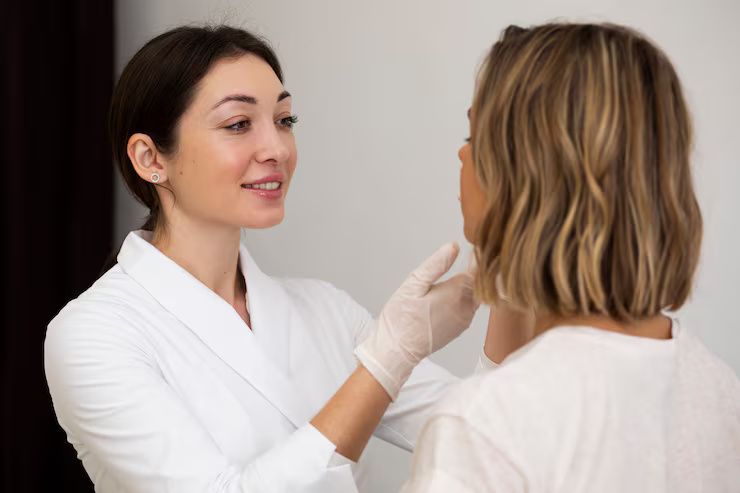Dermatologists are medical professionals who specialize in diagnosing and treating skin, hair, and nail conditions. Whether it’s acne, eczema, pigmentation, hair loss, or skin aging, dermatologists provide evidence-based solutions tailored to individual needs.
Today, learning directly from top-rated dermatologists—whether through in-person consultation or online platforms—can help you make more informed decisions about skincare, cosmetic treatments, or medical concerns. With increasing awareness of skin health, understanding professional guidance has become essential.

Importance – Why it matters to get trusted advice
Skin is the body’s largest organ, and its health often reflects internal wellness, environmental exposure, and personal care habits. Dermatological conditions, if left unmanaged or treated without medical input, can lead to:
-
Worsening symptoms
-
Scarring or pigmentation
-
Psychological stress (especially with visible conditions)
-
Unnecessary spending on ineffective products
Access to insights from dermatologists can help:
-
Prevent common skin issues with early diagnosis
-
Guide safe and effective treatment choices
-
Promote long-term skincare routines suited to individual skin types
-
Reduce myths and misinformation commonly spread online
Dermatologists also play a vital role in identifying serious conditions such as skin cancer, where early detection is crucial.
Recent Updates – What’s new in dermatology (2024–2025)
Dermatology has seen major shifts in accessibility and treatment methods:
-
Rise of online dermatology apps like Curology, Skin IO, and First Derm
-
AI skin analysis tools are being integrated with smartphones and telemedicine platforms
-
In 2024, the American Academy of Dermatology (AAD) issued new guidelines on sun safety and anti-aging skincare for different skin tones
-
Skin barrier science has become central in treating eczema and sensitive skin—new studies support the use of ceramides and prebiotic skincare
-
A surge in laser and microneedling combination therapies has improved treatment outcomes for pigmentation and acne scars
-
Dermatologists are now partnering with nutritionists and mental health experts for holistic skin care
These updates reflect the growing understanding of how personalized care, digital health, and science-backed products shape modern dermatology.
Laws or Policies – How dermatology is regulated
Dermatology practices and telehealth services are regulated to protect patients and ensure ethical care.
United States
-
Licensed dermatologists must be board-certified by organizations like the American Board of Dermatology
-
The FDA regulates dermatology devices (e.g., lasers, cryotherapy tools)
-
HIPAA-compliant telemedicine platforms are mandatory for online consultations
India
-
Dermatologists must be registered under the Medical Council of India (MCI)
-
Cosmetic procedures fall under clinical establishment guidelines
-
The Drugs and Cosmetics Act regulates use of medicated creams, fillers, and injectables
Europe
-
Dermatology is regulated under EU MDR (Medical Device Regulation)
-
Prescription skincare is monitored by national health agencies
-
Providers must inform patients of risks and secure informed consent
Verifying the credentials and clinic licensing of any dermatologist—online or offline—is essential for safe treatment.
Tools and Resources – Helpful websites, apps, and services
Whether you’re researching skincare or booking a consultation, these resources can help you connect with expert dermatologists:
Dermatology Apps
-
First Derm – Online dermatologist answers with image uploads
-
Curology – Personalized skincare prescriptions for acne and anti-aging
-
Skintelli – AI-powered skin type analysis and product suggestions
Websites and Organizations
-
American Academy of Dermatology (aad.org) – Educational resources and find-a-dermatologist tool
-
DermNet NZ (dermnetnz.org) – Trusted database of skin conditions and treatments
-
National Eczema Association – Support, research, and guidelines on eczema care
Tools and Templates
-
Skincare logs to track product reactions or flare-ups
-
Symptom checkers to prepare for dermatologist visits
-
Cost estimators for cosmetic or laser procedures
FAQs – Answers to common questions about dermatology
Q1. What conditions should I see a dermatologist for?
Dermatologists treat conditions like acne, eczema, psoriasis, hair loss, nail fungus, skin infections, pigmentation, and perform cosmetic procedures.
Q2. How can I find a trusted dermatologist near me?
Use verified platforms such as the AAD website, Practo, or Healthgrades. Always check board certification, years of experience, and patient reviews.
Q3. Is online consultation with a dermatologist safe?
Yes, many certified dermatologists offer safe, HIPAA-compliant online services. Ensure the platform and doctor are legitimate before booking.
Q4. Are dermatologist treatments expensive?
Costs vary depending on the location and treatment. Some conditions may be covered by insurance, especially if they are medically necessary.
Q5. What should I bring to a dermatologist appointment?
Bring your skincare products, medical history, photos of past symptoms (if available), and a list of questions or concerns for clarity.
Final thoughts
Learning from top-rated dermatologists is more accessible today than ever before, thanks to telemedicine, skin analysis tools, and educational platforms. Whether you're struggling with a chronic condition or just want expert advice for your skincare routine, a professional dermatologist can provide reliable insights based on science—not hype.
By using the right tools, verifying provider credentials, and staying updated with safe practices, you can make informed, confident decisions about your skin health.